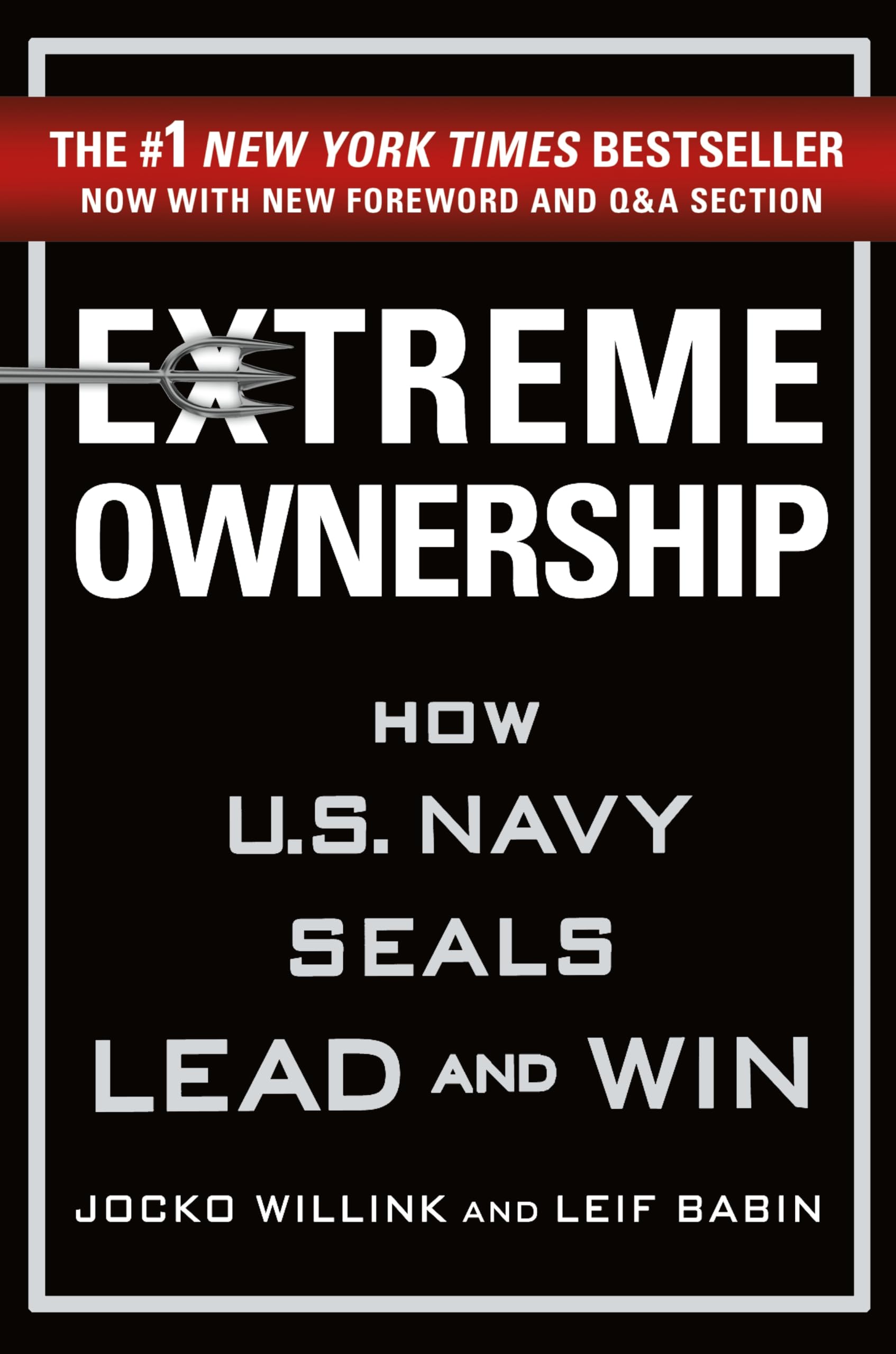Extreme Ownership: How to 10X Your Business with Navy SEAL Leadership Principles
Extreme Ownership: How to 10X Your Business with Navy SEAL Leadership Principles

Scaling a small or mid-size business into a dominant force requires more than just strategies—it demands ownership, discipline, and leadership at every level. Extreme Ownership by Jocko Willink and Leif Babin, based on their experiences as Navy SEAL leaders, provides a framework for achieving explosive business growth through leadership excellence.
If you want to grow your business 5–10X, you must take complete ownership of everything in your business—good, bad, or ugly. Here’s how to apply the book’s principles to scale like a leader.
1. Take Extreme Ownership—Your Business Is Your Responsibility
Most businesses stay small because their leaders avoid responsibility. They blame the market, employees, or circumstances instead of taking full ownership.
Extreme Ownership means:
- The success or failure of your business is on YOU.
- Every problem—cash flow, sales, employee issues—is your problem to solve.
- You can never make excuses, only find solutions.
Ask yourself: What challenges in my business am I blaming on external factors? How can I take full responsibility for fixing them?
2. Believe in the Mission—Define Your Why
Willink and Babin stress that leaders must fully believe in their mission. If you don’t have a clear vision of why you want to scale, your team won’t either.
To build a business 10X its current size, define:
- Your long-term vision – What’s the impact you want to create?
- Your company’s core mission – Why does your business exist beyond making money?
- What growth means for your customers, employees, and community – Why does it matter?
3. No Bad Teams, Only Bad Leaders—Develop a Culture of Accountability
A weak team is not a people problem; it’s a leadership problem. If your team isn’t performing, it’s because you haven’t given them the training, accountability, or clear direction they need.
To build a high-performance team:
- Set high expectations—never settle for mediocrity.
- Coach and mentor employees instead of just managing them.
- Hold yourself accountable before holding others accountable.
4. Cover and Move—Prioritize Teamwork Over Individual Effort
In combat, SEAL teams work together with one clear mission. Businesses must do the same. Departments, teams, and leaders must collaborate, not compete.
To scale your business, break down silos:
- Ensure sales, marketing, and operations work together instead of blaming each other.
- Communicate clearly so everyone knows their role in the mission.
- Encourage a "We win together, we lose together" mindset—no finger-pointing.
5. Keep It Simple—Complexity Kills Execution
The more complicated your business processes, the harder it is to scale. SEAL teams use simple, repeatable strategies to operate under extreme pressure.
To simplify:
- Cut unnecessary steps from sales, marketing, and customer service processes.
- Ensure your growth strategy is easy to communicate and execute.
- Train employees on clear standard operating procedures (SOPs).
6. Prioritize and Execute—Avoid Overwhelm, Focus on What Matters
When businesses try to scale too fast in too many directions, they get overwhelmed. SEAL teams assess, prioritize, and execute one step at a time.
For business growth:
- Identify your biggest constraints (e.g., lead generation, hiring, cash flow).
- Tackle one major issue at a time, instead of everything at once.
- Create a clear execution plan and ensure your team stays focused.
7. Decentralized Command—Empower Leaders at Every Level
Many small business owners stay stuck because they try to do everything themselves. SEAL teams succeed because leadership is distributed across every level.
To scale:
- Empower key employees to make decisions without micromanagement.
- Train your managers to be leaders, not task-doers.
- Create a culture where everyone takes ownership, not just you.
8. Discipline Equals Freedom—Create Scalable Systems
One of the book’s core lessons is that discipline leads to success. Scaling a business isn’t about chaos—it’s about disciplined execution.
Discipline means:
- Having structured sales, marketing, and operational processes.
- Sticking to metrics-driven decision-making, not just gut feeling.
- Staying consistent with customer service, branding, and company culture.
Final Thought: Own Everything, Scale Everything
Most businesses don’t scale because they lack extreme ownership. Leaders hesitate, blame external factors, or fail to execute with discipline.
If you want to 10X your business, start by leading at the highest level. Own the problems, take decisive action, and create a culture of accountability and excellence.
What’s the biggest leadership shift you need to make to scale your business today?

